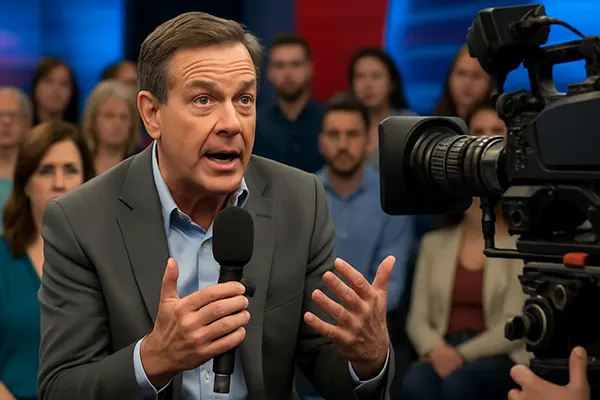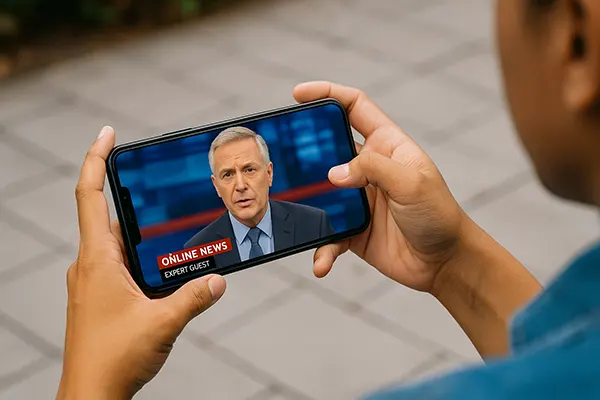Media Pseudo-Expertise: The Hidden Impact of False Authorities on Public Opinion

In the era of accessible information, the boundary between verified expertise and fabricated authority is increasingly blurred. With the media landscape flooded by opinionated voices, society faces an urgent challenge — distinguishing genuine experts from self-proclaimed ones. This article examines how pseudo-expertise infiltrates public discourse, why it matters, and what can be done to preserve truth and trust.
How Pseudo-Experts Shape Public Opinion
Pseudo-experts appear across all media formats — from morning talk shows to viral online videos — often without any legitimate credentials or peer-reviewed experience. Their confident delivery and simplified arguments appeal to large audiences, allowing misinformation to spread faster than facts. The public’s inability to verify qualifications further enables these individuals to establish influence.
Unlike recognised professionals, pseudo-experts rarely undergo rigorous scrutiny or follow ethical standards of their domain. They often adopt the language of science or academia, using selective data or emotional appeals to back unfounded claims. This tactic effectively manipulates public perception, especially in emotionally charged or polarised topics.
The result is a distorted information environment where the loudest voice, not the most accurate one, dominates. In areas such as health, climate change, or politics, the spread of pseudo-expertise can have dangerous consequences, shaping beliefs and decisions with long-term societal costs.
Psychological Triggers Behind Public Trust
One reason pseudo-experts gain traction is rooted in human psychology. People tend to trust confidence over accuracy, especially when under cognitive overload or stress. Familiarity bias also plays a role — repeated exposure to a person or message can falsely enhance credibility.
Another key factor is confirmation bias. Viewers often seek content that aligns with their existing beliefs, making them more susceptible to accepting questionable statements as truth. Pseudo-experts exploit this by crafting narratives that validate emotions or grievances.
In an information-rich environment, cognitive shortcuts such as these are natural. However, when exploited, they degrade the public’s ability to critically assess information, leading to decisions that are less informed and more reactive.
Media’s Role in Amplifying False Expertise
Modern media channels, particularly social networks and 24/7 news cycles, prioritise engagement metrics over informational quality. This dynamic incentivises sensationalism and controversy — ideal conditions for pseudo-experts to thrive. Appearances on influential platforms can lend unearned legitimacy, particularly when fact-checking is absent or minimal.
Traditional journalism faces constraints such as time pressure, budget cuts, and competition for attention. These factors reduce investigative rigour and lead to the booking of easily available, media-trained individuals over verified specialists. As a result, audiences are repeatedly exposed to the same pseudo-authorities across programmes and platforms.
In addition, algorithms designed to maximise watch time and shares often boost provocative content. Pseudo-experts craft emotionally charged messages optimised for these systems, increasing visibility and embedding themselves deeper into public consciousness.
Responsibility and Accountability in Media
Editors, producers, and content moderators hold a crucial role in curbing the reach of pseudo-expertise. Transparent vetting processes and clear guidelines on expert representation are necessary safeguards against misinformation.
Media organisations can also collaborate with academic institutions and verified databases to identify credible commentators. This ensures that voices with proven knowledge and experience are prioritised during coverage of complex or sensitive issues.
Training journalists to recognise the red flags of pseudo-expertise — such as vague credentials, lack of peer-reviewed work, or past misinformation — further strengthens editorial standards and reduces the risk of inadvertent amplification.

Countering the Influence of False Experts
To combat pseudo-expertise, a multi-layered approach is required. Firstly, public education in media literacy must be prioritised. Teaching audiences how to evaluate sources, cross-check claims, and distinguish expertise from opinion is essential for informed citizenship.
Secondly, professional communities must proactively defend the integrity of their fields. This includes responding publicly to false claims, engaging in accessible outreach, and holding misleading figures accountable. Silence from genuine experts often creates a vacuum that charlatans eagerly fill.
Finally, policy-level interventions — such as labelling content, introducing minimum standards for expert designation in media, or penalising deliberate disinformation — can establish accountability and transparency in public discourse.
Empowering Audiences Through Digital Literacy
Digital literacy programmes that focus on source verification, bias recognition, and critical thinking can substantially reduce the influence of pseudo-experts. These should be integrated into school curricula and adult education alike.
Campaigns by civil society organisations, libraries, and academic institutions play a pivotal role in public awareness. When communities are equipped with tools to navigate information critically, the power of false authorities diminishes significantly.
Ultimately, an informed society is the best defence. Encouraging engagement with diverse perspectives, fostering analytical thinking, and valuing expertise over virality are fundamental steps toward reclaiming the integrity of public discourse.
